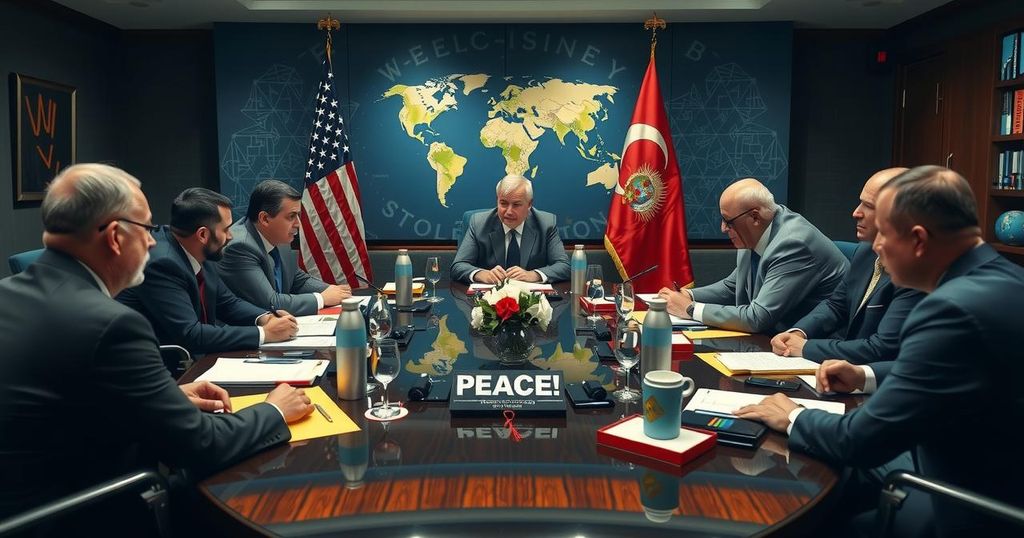World news
ASIA, BRAZIL, DIPLOMACY, ECONOMIC FORUM, EUROPE, EUROPE/ASIA, G20, GAZA, GAZA STRIP, GOLAN HEIGHTS, INTERNATIONAL RELATIONS, ISRAEL, KYIV, LEBANON, LUIZ INACIO LULA DA SILVA, LULA, MILITARY SUPPORT, MODERN ART MUSEUM, NORTH AMERICA, RIO DE JANEIRO, RUSSIA, RUSSIA-UKRAINE WAR, SERGEY LAVROV, SOUTH AMERICA, UKRAINE, UN, UNITED NATIONS, UNITED STATES, US, VLADIMIR PUTIN, WAR, WASHINGTON, WHITE HOUSE
Marcus Chen
0 Comments
G20 Leaders Advocate for Ceasefires and Global Cooperation on Key Issues
G20 leaders convened in Rio de Janeiro, calling for comprehensive ceasefires in Gaza and Lebanon, and addressing global challenges such as poverty, hunger, and climate change. Brazilian President Luiz Inacio Lula da Silva emphasized that extreme poverty results from political decisions, launching a Global Alliance Against Hunger and Poverty with international support. The summit faced tensions over Ukraine, while leaders recognized the need for increased climate finance without committing to specific funding sources.
The G20 leaders have called for comprehensive ceasefires in both Gaza and Lebanon, emphasizing a collaborative approach to pressing global issues such as climate change, poverty alleviation, and equitable taxation of the ultra-wealthy. During their recent summit in Rio de Janeiro, they faced heightened global tensions, particularly in the context of the Ukraine conflict, while U.S. President-elect Donald Trump is set to take office in January. The summit, held at the Modern Art Museum in Rio, saw discussions centered on the crisis in Ukraine, which dominated the initial sessions. The leaders issued a declaration favoring initiatives that promote a durable peace and condemned any aggression aimed at territorial acquisition, yet notably refrained from directly addressing Russian actions. Russian Foreign Minister Sergey Lavrov represented the nation in lieu of President Vladimir Putin, who is subject to an arrest warrant by the International Criminal Court. In response to the ongoing humanitarian crisis, G20 members expressed profound concern over the situation in Gaza while echoing calls for a ceasefire aligned with a UN resolution proposed by the United States, which demands the release of prisoners held by Hamas. Similar calls for peaceful resolutions were extended regarding the escalated tensions in Lebanon, with the G20 urging the safe return of citizens affected by the conflict. Brazilian President Luiz Inacio Lula da Silva highlighted issues such as poverty and hunger at the summit, asserting that these conditions are the result of political decisions rather than a lack of resources. Eighty-one countries, under his proposed Global Alliance Against Hunger and Poverty, pledged to address these challenges, backed by various multilateral organizations and philanthropic entities. However, Argentina, under the leadership of President Javier Milei, was the lone G20 member not to support this initiative, citing disagreements with aspects of the G20’s final communique. While climate change was a topic of general consensus, the summit failed to yield significant advancements in climate finance commitments, only acknowledging the critical need for increased funding. The leaders agreed to outline specific financial goals for rich nations to support poorer countries by the upcoming UN COP29 climate summit in Azerbaijan.
The Group of Twenty (G20) is an international economic forum comprising the world’s major economies, aimed at addressing pressing global issues through collaborative dialogue and policy development. This recent summit, held in Brazil, became particularly significant against a backdrop of rising geopolitical tensions, particularly related to the Israel-Palestine conflict and the war in Ukraine. The inclusion of poverty and climate change in discussions reflects the G20’s broader agenda of fostering sustainable development and addressing economic disparities. Lula da Silva’s leadership has reignited focus on social issues, emphasizing the interconnectedness of political decisions and their socio-economic outcomes, thus shaping the discourse at the summit.
In conclusion, the G20 summit in Brazil served as a platform for leaders to address critical global issues while navigating the complexities of current geopolitical conflicts. The emphasis on ceasefires in Gaza and Lebanon, along with calls for cooperative measures on poverty and climate change, demonstrates a collective commitment to pursuing sustainable solutions. The discussions further highlighted diverse perspectives within the G20, particularly in relation to social initiatives proposed by Brazil’s leadership, illustrating the ongoing challenge of achieving consensus among member states. Significant strides towards addressing climate finance and poverty alleviation will necessitate sustained collaboration beyond this summit.
Original Source: www.aljazeera.com




Post Comment